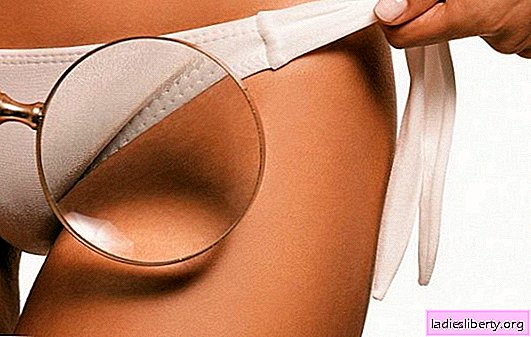
Rarely meet a woman who would not care about their appearance. In an effort to look good, there is nothing surprising and strange. Another thing is when thoughts about your own reflection in the mirror do not leave a woman alone and provoke certain complexes that interfere with a full life. Specialists gave such a neurotic state a medical definition - dysmorphophobia - fear of one’s own body or dissatisfaction with one’s appearance.
With dysmorphophobia, a person is fixated on the features and shortcomings of his appearance. Thoughts about his "imperfection" never leave him. A person believes that such a "defect" prevents him from meeting his love and creating a happy family. People with dysmorphophobia have low self-esteem and have the highest risk of suicide among them. Both men and women are subject to this mental illness. But in practice, it is the fair sex that more often takes far-fetched and real flaws in its appearance too seriously.
Why dysmorphophobia occurs?
Dysmorphophobia is a mental disorder, and therefore its causes have psychological overtones.
- When parents don’t give their child the proper portion of love and caress, but carefully monitor its appearance, they inadvertently make him a slave of their own appearance. Such a child thinks: if he does not correspond to the ideal of beauty, he will be deprived of parental love.
- The disease often develops during adolescence due to an unstable psyche, ridicule, and peer pressure.
- It has been established that dysmorphophobia can be transmitted at the genetic level.
- One of the indirect causes of the disease is social stereotypes and modern ideals of beauty, which women cannot always achieve due to their physical characteristics. The promotion of the “beautiful” figure in 90/60/90 makes teenagers, girls and women torture themselves with diets, exhausting physical training, as a result of which they “earn” a mental illness.
Symptoms on face
Many people think that dysmorphophobia is easy enough to identify: the man’s picky attitude to his appearance speaks for itself about the presence of mental disorder. However, this is not always the case. There are several symptoms that are considered in the aggregate - only in this case, we can talk about the presence of dysmorphophobia.
- Special attitude to the mirror: a person tries in every way to “find” a reflective surface in order to look critically at his appearance.
- The lady strongly refuses to be photographed.
- People often have thoughts about plastic surgery that can be easily performed.
- People with this disorder tend to choose for themselves a shocking image.
- Often a person brings himself to anorexia with heavy and long workouts.
- In a conversation, he all the time mentions his appearance.
Is it possible to cure dysmorphophobia?
Treatment of mental disorder depends on the form of the disease: mild or severe. This disease is easier to correct in adolescence. Often young people dysmorphophobia "outgrow".
Sometimes the moral support of a loved one or friends helps to cope with the “fear of your body”. The main task of the people around them is to make a person believe in himself. It is often necessary to focus on its merits, the ability to adequately behave and perfectly perform the tasks set at work. But these techniques are good for the mild form of the disease.
When the cause of the disease - an attempt to imitate glossy ideals - you need to eliminate the sources of "irritation". You should turn your attention to something else or find a suitable hobby for yourself.
With a serious form of the disease, a person cannot do without the advice and help of specialists. A psychotherapist or psychologist will be able to pick up the necessary training, effective drugs or use hypnosis.
A person suffering from dysmorphophobia should not be afraid of his "weirdness", it is better to quickly tell existing people about phobias to close people or to seek help from a psychologist.
Text: Svetlana Ahi











